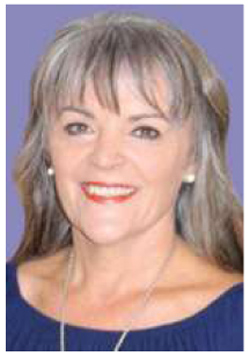July 2019

| Louise Kunz, Pula Imvula contributor. Send an email to louise@infoworks.biz |
 |
Although Grain SA’s mentorship programme was established to improve the agricultural skills of small-scale farmers and ultimately improve their lives, the mentors have all discovered how much they themselves are benefitting from the programme.
GROWING THROUGH MENTORING
Sinegugu Ndamase is a junior mentor in the Eastern Cape who was trained by Sinelizwi Fakade, Grain SA’s provincial co-ordinator in the Eastern Cape. She formed part of the intern programme and started working individually as mentor in the previous season. This positive young lady is full of praise for the changes this programme has brought about in her own life.
‘I have become a better woman through the programme. The first time I had to go to a study group on my own, I was very scared. Now I can say that working independently is one of the best things that has happened in my life.’
She shares that her communication skills have improved with leaps and bounds as she has had to address large groups with no back up. ‘This has also resulted in my confidence growing,’ she says.
Before she became a mentor, Sinegugu had very little driving experience, but the programme has even helped develop her driving skills as she has had to learn to steer her vehicle on rugged terrain to reach her farmers. It has even helped her become fitter as she often takes a taxi to the more secluded areas and then must walk some distance on the gravel roads.
THE LEARNER BECOMES THE TEACHER
Sinegugu’s interest in crop growing was sparked when she went to high school at Sehole Combined School in Harding, KwaZulu-Natal. She lived with her aunt who had a vegetable garden and she found it very exciting to see food being grown from seeds. She was the only one in the household who always helped attend to the plants. Agricultural studies were part of the curriculum at school. She found the subject content, which included crop production and livestock, so interesting that she decided to also make a future of it.
After finalising her matric studies, she completed a diploma and then a BTech degree in Agricultural Management, specialising in crop production at the Nelson Mandela University in Port Elizabeth. She then successfully completed her honours degree focusing on rural development.
Currently five study groups in the N2 Dutywa region in Mthatha with 119 farmers from the age of 40 upwards fall under Sinegugu’s leadership. These smallholder farmers all plant on plots between 1 ha and 5 ha. Of these, four study groups are new to the programme. Last year the existing group’s farmers reached a yield of between 3 t/ha and 4 t/ha. ‘This is 60 to 80 bags of maize and I am so proud of them.’
Using the carefully worked out syllabus provided by Grain SA, guiding farmers to improve their skills has become almost effortless to Sinegugu as she loves the content of the programme. She is proud to say that she really knows the ‘book’ by heart which makes it easier to convey the information. Being confident as a teacher also helped gain the trust of the one group who was first mentored by Sinelizwi. ‘They were first a bit wary of the girl who was following in the boy’s footsteps,’ she giggles, but once they saw she really was a farmer at heart, they accepted her with open arms.
Personal visitation is done regularly to ensure that what is being taught, is also put into practise on the plots. Although farmers planted under stress this season with high temperatures, low rainfall and problems with contractors, they are all very excited to see that crops are looking good. ‘To me this season forms the highlight of my time as mentor,’ she says as she saw despondent farmers faced by many challenges not thinking they would have a crop this season. ‘To see them excited about what is growing, makes me very proud!’
TACKLING CHALLENGES HEAD ON
In her short time as mentor, Sinegugu has found three areas that need to be addressed often:
For Sinegugu, being a mentor has just enhanced her belief that agriculture is not only a way of living, but it is life – without it there will be no food and no food means no life. As the American business magnate, Bill Gates said: ‘Investments in agriculture are the best weapons against hunger and poverty – they have made life better for billions of people.’
Publication: July 2019
Section: Pula/Imvula